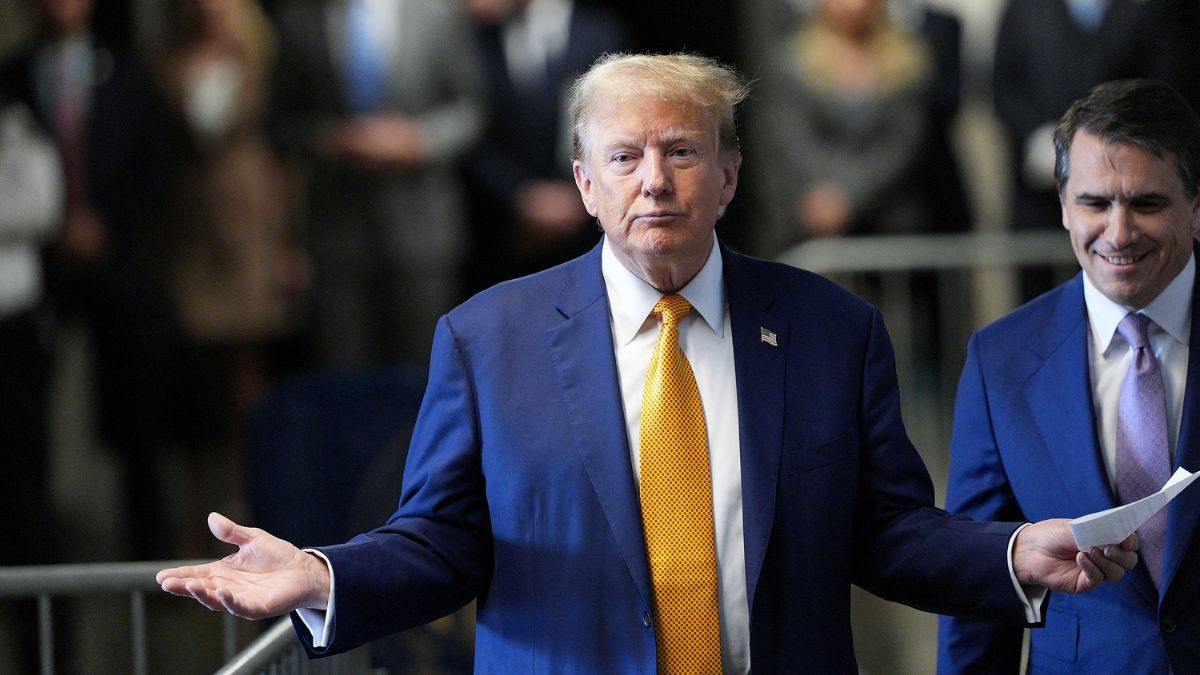President Donald Trump’s flip-flops on providing Tomahawk missiles to Ukraine are just the latest symptom of the tension between a strong public mandate for American isolationism and expensive commitments to global military engagements. This contradiction highlights a deeper tension within the unavoidable trade-off between hegemonic stability and isolationist impulses.
Trump’s Maga slogan championed a retrenchment from foreign entanglements, promising reduced military obligations abroad and a focus on “America First”. Yet, the geopolitical realities and structural demands of global power maintenance continue to pull the administration into expansive commitments that undermine isolationist rhetoric.
Most notably, the conflict in Ukraine and the rising threat posed by China in Taiwan and the South China Sea have compelled the U.S. to invest massive political capital and financial resources—a stark departure from any genuine disengagement strategy. Add to this monetary bailouts—$40 billion promised to Argentina and the yearly $4 billion to Israel, to name just two—and an endless list of global commitments emerges.
Russia’s relentless aggression in Ukraine has forced Washington to pour billions into military aid and training for Kyiv. These deep financial and political commitments reinforce a key tenet of hegemonic stability: a hegemonic power must actively deter challengers to preserve order and maintain credibility through demonstrable “skin in the game”.
Similarly, China’s strategic ambitions have compelled Washington to shore up its military presence across the Indo-Pacific region. The Trump administration’s efforts to shift more of the military burden onto European, Japanese, and South Korean allies risk undercutting U.S. influence and potentially spurring nuclear weapons acquisition by these countries—a prospect no hegemon relishes. In Ukraine, Taiwan, and Venezuela, the U.S. confronts strategic entrapment orchestrated by China and Russia. History repeats itself: despite isolationist inclinations, maintaining a credible deterrent posture demands profound and ongoing resource outlays.
In the Western hemisphere, Venezuela exemplifies the contradiction between rhetoric and practice on American engagement. While professing a desire to reduce entanglements abroad, the Trump administration authorized covert CIA operations and naval deployments intended to exert political pressure on the Maduro regime. This constabulary function—necessary to control strategic corridors and resources like energy supplies—represents another layer where isolationism is sacrificed for hegemonic imperatives.
Impact Shorts
More ShortsAdding another layer to these contradictions, the Trump administration’s extraction of resources from unstable or conflict-affected countries like Ukraine and the Democratic Republic of Congo serves to reinforce the U.S. constabulary role abroad. The pursuit of rare earth minerals and other strategic commodities closely linked to military and technological advantage ties American power to maintaining influence in fragile regions—an expensive, continuous endeavour that complicates any claims of withdrawing from global commitments.
Trump’s policy approach validates that the United States now faces structural constraints making isolation both impractical and self-defeating. When regional challengers impose costs on the established order, hegemons must either accept diminishing influence or escalate resource commitments. The Trump administration appears to engage in tactical realignments and burden-sharing demands rather than a wholesale retreat, preserving global leadership through selective but sustained engagement.
However, these contradictions generate significant domestic political risks. The electoral base that propelled Trump to power often views foreign entanglements as costly distractions from pressing domestic concerns. By conceding to massive military and financial commitments overseas, Trump risks alienating core supporters whose enthusiasm is rooted in the Maga mantra of retrenchment and national sovereignty. The Republican Party potentially faces electoral costs for eroding this foundational isolationist sentiment.
Neglecting or downplaying the dissonance between rhetoric and reality invites political backlash, complicating the administration’s ability to maintain cohesive support.
Critically, isolationist doctrine precludes commitment of ground forces, thereby constricting U.S. grand strategy and emboldening adversaries cognisant that Washington will eschew direct military intervention. This self-imposed constraint undermines deterrence credibility and facilitates opportunistic aggression by revisionist powers.
Trump’s evident retreat from the Maga isolationist mandate thus generates compounding vulnerabilities: it jeopardises his political legacy, imposes electoral liabilities upon the Republican Party, and fundamentally compromises American grand strategy by signalling strategic incoherence to allies and adversaries alike. The dissonance between rhetorical isolationism and operational interventionism erodes both domestic political capital and international credibility, illustrating the acute difficulties inherent in reconciling populist electoral appeals with the exigencies of hegemonic maintenance.
In conclusion, the Maga mandate to reinforce American isolationism is critically undermined by the enduring demands of hegemonic stability in an unstable world. The pursuit of great power status remains incompatible with true isolationism, and managing this contradiction will shape the trajectory of American foreign policy and domestic politics in the years ahead.
The writer is a senior journalist with expertise in defence. Views expressed are personal and do not necessarily reflect those of Firstpost.
)